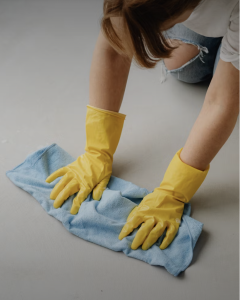How would you treat yourself if you were someone you loved? This is one of my favorite questions. It is not only instinctive to take good care of someone you love, but also to take good care of yourself. Unfortunately, we are trained to un-learn our loving instincts when it comes to ourselves. Many people are unaware of how they treat themselves. They spend their lives angry about the kind of care they received as children but end up offering themselves the very same kind of care. There comes a point in life when you have to take ownership of your own caretaking — to consciously choose the kind of relationship you will have with yourself.
Ask yourself: What kind of self-parent are you?
Are you a:
What Did You Do to Cause the Problem? Self-Parent
This inner parent is always there to inform you why you are to blame for whatever bad thing happened and whatever pain you feel. If you fall down and skin your knee, it is because you were running too fast.
See it from the OTHER guy’s perspective, Self-Parent
This inner-parent is very good at reminding you why the person who hurt you had a good reason for doing what he did, and why you should understand HIS side. The man you love broke up with you? Certainly you should empathize with why he would want to leave his options open, and not settle down so quickly. Ultimately, HE was right to disappoint you!
What Are You Going to DO to Fix It? Self-Parent
This inner parent doesn’t comfort you, but instead tells you what you need to do to fix the problem that you caused. If you are feeling sluggish, then get yourself to the gym already!
There’s Something Wrong With the Way You Feel, Self-Parent
You are hurt because you are too sensitive, upset because you are too dramatic. This caretaker reminds you that your feelings are not what they should be, and that ultimately, your response (and you) are the real problem.
There’s No Reason to Feel the Way You Do, Self-Parent
This inner parent is quick to tell you why your feelings make no sense in the world of logic. If you have an important recital and are anxious about it, your anxiety is irrelevant since everyone in the audience loves you. The facts simply invalidate your experience.
I’m Not Interested, Self-Parent
This inner parent is just not interested in your feelings regardless of what they are, and thus ignores your inner experience altogether. The message is that you are not important enough to acknowledge, much less comfort.
Do you recognize yourself in any of these self-parents? If so, what would it mean to start treating yourself as if you were someone you love? What would need to change? While it might seem ridiculous to suggest that we need instructions for how to properly care for ourselves, regrettably, we do.
To create a new system, you must become aware of the system already in place. What do you say to yourself (on the inside) when you are in need of support, feeling hurt, not at the top of your game? Listen to the words and tone you use with yourself. Imagine uttering these same words or using this same tone with someone you love.
Consciously, actively, begin a practice of self-care. Decide to be that good parent who is automatically on your side, without your having to defend yourself or prove why you deserve their support. Be that friend who assumes that the way you experienced it was the way it happened, who takes your goodness to be a given. Be that big brother who when you get bullied on the playground leads by asking the question, “What did that bully do to make you feel this way?” Be all of these — for you!
Throughout this practice, the word “No” must become a strong presence in your internal life. No, I will not…
Automatically take the other person’s side.
Assume the worst about me.
Hold myself as responsible and to blame for the way I feel and whatever has gone wrong.
Discredit my own feelings.
Talk to myself as if I do not matter.
Shame myself for what I am feeling.
Reject or ignore myself when I am upset.
Put myself last.
Terrorize myself with potential disasters.
Be mean to or bully myself.
And finally: No, I will not accept being treated this way — by me.
So too, the word “Yes” becomes equally important. Yes, I will treat myself with the same kindness that I offer those I love — no matter what.
Even if at first you don’t know how to implement these new behaviors, continue to repeat the phrases and pay close attention to how you actually do self-parent. Catch yourself in the act of mistreating yourself and stop it. By simply noticing your current self-treatment, and simultaneously suggesting a new, kinder system, some part of you is saying that it knows that you deserve better care. The more you voice that part of yourself and offer it a seat at the inner table, the stronger it will grow and the more it will feel entitled to be there! A day will then come when the majority (if not all) of you will know that not just those you love, but you too are good — and equally deserving of your own kindness.
In life, the person you spend the most time with is yourself. You are always in your own company. Why not keep company with someone who loves you as opposed to someone who does not particularly like you, or worse? With even the smallest degree of proper self-parenting, you will start to notice that you feel more relaxed, more loved, that you are more trusting, happier, and more alive. Proper self-parenting is like watering a seed. You are that seed and with the proper attention and care, you too will bloom.
Copyright 2012 Nancy Colier


